Non-Crazy Questions (I)
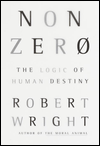 Robert Wright's 2000 book Nonzero: The Logic of Human Destiny ought to be just as much a part of "teaching the controversy" about Darwin's theory of evolution in high-school biology classes as anything written by Intelligent Design provocateurs Michael Behe and William Dembski.
Robert Wright's 2000 book Nonzero: The Logic of Human Destiny ought to be just as much a part of "teaching the controversy" about Darwin's theory of evolution in high-school biology classes as anything written by Intelligent Design provocateurs Michael Behe and William Dembski.Wright, a science writer, not a scientist, treats the subject of human cultural evolution as an extension of that of biological evolution à la Darwin. He finds that there are principles common to both that predispose both to the playing of "non-zero-sum games." Also known as a synergistic or win-win proposition, a non-zero-sum interaction or "game" (as long as it's not negative or lose-lose) allows its participating agents or entities to take advantage of their overlapping self-interests to produce a mutually satisfactory outcome.
An example of a positive non-zero-sum game — the term "game," by the way, is drawn from the scientific field of game theory and is not intended to connote a trivial or insignificant pastime — is the process undertaken by the three Apollo 13 astronauts and their mentors in Ground Control to get them home safely after a catastrophe in deep space. All those concerned had to put aside their everyday rivalries and antagonisms to make things come right in the end.
Evolution, Wright says, prefers such cooperative games to the more celebrated "zero-sum games" in which adversarial competition ensures that for each winner there will be a corresponding loser. For each victor on the football field, there will be a team that fails. (Vince Lombardi said, "Winning isn't everything, it's the only thing.") For each successful predator in the jungle there will be an unfortunate prey, and nature is accordingly (says the poet) "red in tooth and claw."
But, no, win-lose games aren't the main event in evolution. Win-win games outshine them in the tapestry of cultural and biological evolution, Wright shows. There is accordingly "a kind of force — the non-zero-sum dynamic — that has crucially shaped the unfolding of life on earth so far" (p. 5).
The upshot is that the win-win dynamic gives the evolutionary unfolding a directionality, an "arrow" which points the world in a direction which we might call "progress." The dust jacket blurb puts it well: Wright "has mounted a powerful challenge to the conventional view that evolution and human history are aimless." Wright's definition of progress has to do, specifically, with the emergence of increasing complexity and the capacity for intelligent behavior which is its natural counterpart.
The non-zero-sum dynamic is indeed so powerful, and the emerging out of the primordial soup of "today's interdependent global society" so nearly inevitable, even, "as to invite speculation about higher purpose" (says the dust jacket).
Towards the end of the book, accordingly, after having demonstrated the power of non-zero-sumness in shaping our planet's history, Wright talks of the purpose and meaning of it all.
One "non-crazy question" he asks is whether there is developing some kind of planetary superorganism, with us as its super-brain. This is what the late French paleontoligist, philosopher, and Jesuit priest Pierre Teilhard de Chardin suggested might be in the cards, way back in the 1940s and '50s. Wright basically strips Teilhard's ideas of their mushy mysticism and presents them from a hard-headed point of view with no preexisting theological committments.
Other "non-crazy questions" Wright asks concern the purpose of this worldly trajectory, in view of such speculative conjectures about our path into the future. Is there a purpose to evolution's pathways? If so, does it imply that evolution possesses, or confers, design? And if it does, "Is there evidence not just of design, but of divine design? Any signs of something worthy of the label 'God'?" (p. 318).
Wright divides the question of what others (but not he) call Intelligent Design up into two sections. In the first section (pp. 309-315), he addresses the issue of whether natural selection is purposive.
He claims the "tree of life" which evolution by natural selection has produced behaves like an actual plant in important respects. Just as a plant seems to seek to grow in the direction of a source of light — the sun — the tree of life seems to seek to grow in the direction of a more abstruse, admittedly hypothetical, goal: "the creation of organic complexity, in several senses: broadening the diversity of species, raising the average complexity of species, expanding the outer limit of complexity, and expanding the outer limit of behavioral flexibility — that is, of intelligence" (pp. 312-313).
(Full descriptions of these aspects of complexity and its creation are outlined in Wright's chapter "Why Life Is So Complex." I won't go into them in detail here. Suffice it to say that Wright's use of the term "complexity" follows that of scientists who have recently begun to make it the centerpiece of their inquiry. See such books as Roger Lewin's Complexity: Life at the Edge of Chaos.)
The tree of life also behaves like a real plant in that if it is "pruned" — say, by wiping out all life on a particular island — a new ecosystem very gradually establishes itself, similar but not identical to the old one in terms of the "niches" which get filled by its new member species.
We say uncontroversially that a physical plant, as a living organism, exhibits "persistence toward the hypothesized goal," the finding of light. It does so "under varying conditions" — say, if the plant is resituated with respect to the direction of the sun. Furthermore, and crucially, it accomplishes all this "by processing information." Through the stimulation of light sensors that are an organic part of the plant, it reduces its original ignorance as to which way the sun shines from (p. 312).
So, Wright says, the behavior of a rose bush, or of any other plant, is teleological: the plant as a system is one that "seems built to pursue a telos, an end, a goal" (p. 310).
To Wright, exhibiting goal-directed behavior, at least when responses to positive and negative feedback (i.e., information processing) are involved, implies that the goal-directed entity — or, significantly, the goal-directed process — is possessed of a purpose. Furthermore, that which the entity or process produces can be said to have been designed.
Accordingly, the tree of life that has been produced by the process evolution by natural selection on this planet bears evidence of design. Life on Earth's designer is — wait for it — natural selection itself!
This is not to say that natural selection has intent. For one thing, it's not an entity, it's a process, and what would it mean for a process to have will or intent?
For another thing, we can't say, just because natural selection "senses" conditions in the environment, that natural selection is ipso facto capable of subjective experience, much less sentience (see p. 314).
What Wright means here is that individual organisms in the act of reproduction send out packets of information — genes — in a way that will determine whether the environment is or is not hostile to those particular genes. If the environment is favorable to organisms bearing the characteristics the genes code for, the genes proliferate. Otherwise, the genes in question dwindle and die. When a certain gene increases its presence in a species' population, that's "positive feedback." Natural selection then can be said to "favor" that particular gene.
To say that natural selection "learns" which genes and genomes are viable and which ones aren't, under given sets of environmental circumstances, doesn't require that the learning be conscious or that the acheivement of natural selection's goals be done with anything like what we would call awareness.
We can see that Wright's idea here is a tricky, slippery one. Something that has nothing like a corporeal body — natural selection itself — is acting just like a robot. Though lacking any sort of physical body, it's acting like it has some sort of "brain" — just as a clever mechanical robot acts. But this "brain" of nature, though it can take in information about the environment and modify the behavior of the evolving biosphere accordingly, doesn't necessarily have will, intent, conscious awarneness, sentience, or subjective experience. It's just a servomechanism, but one without a physical being.
I'd have to admit that Wright's arguments along these lines have certain weaknesses. He wants to show, primarily, that it's not crazy to think of evolution as teleological — as "imbued with purpose" (see p. 312). He says (p. 315), "It may indeed be that evolution is not teleological. But if that's the case, then evolution is the only thing I can think of that exhibits flexible directionality via information processing and isn't teleological."
To me, one major weakness of Wright's argumentation here is that in preceding paragraphs he makes a distinction between "beings" and "processes," and he emphasizes that evolution by natural selection is a "process," not a "being." For example, he echoes another writer (Dobzhansky) in saying, "Natural selection is a process conveying 'information' about the state of the environment to the genotypes of its inhabitants" (p. 314).
Now, in calling evolution a "thing" in the quotation above, Wright may or may not be using "thing" as a synonym for "being." If he is, then he's being self-contradictory. If he isn't, then he fails to provide any other example of an existent process which has no physical "being" but does have teleological purposiveness, or "flexible directionality via information processing."
True, this argument is intertwined with one in which Wright talks up the idea that human society, as we become more and more interconnected globally, is evolving into the "superbrain" of a "superorganism" — the latter being the planet's biosphere. Maybe this "superorgnism" has no physical being, either. Maybe it's "brain" — i.e., us — is at a tipping point and is moving from "ordinary" evolution into an emerging capacity to "meta-evolve" (see p. 315).
The two arguments, the one about the teleological nature of natural selection and the one about the emerging global "superbrain," prop each other up. But such a mutual-propping-up form of argumentation is not ironclad. That's one reason why Wright admits that all he wants to show is that the two paired conclusions — that evolution is both directional and teleological; that a superorganism/superbrain configuration is in store for our planet — are not ones you'd have to be crazy to believe.
Nothing has yet been said about God, please note. Remember, I said above that Wright divides his discussion of what some would call Intelligent Design into two parts. The first concerned teleology in evolution, paired with intimations of an emerging supoerorganism/superbrain. The second part of Wright's argument, the one concerning the possibility that God exists, will be dealt with in the next segment of this series of posts, Non-Crazy Questions (II).






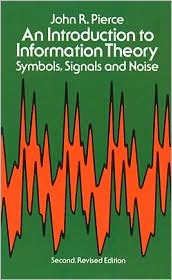

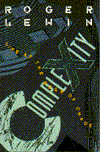


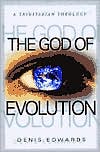

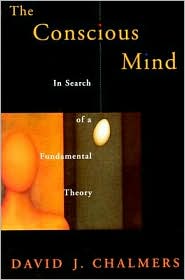
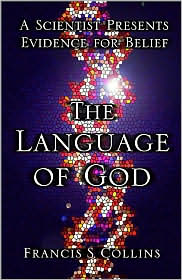


1 Comments:
You might check out my
History and Evolution for the relation of cultural and biological evolution,
and a page http://eonix.8m.com/nonzero.htm for a comment of Wright's book.
Post a Comment
<< Home